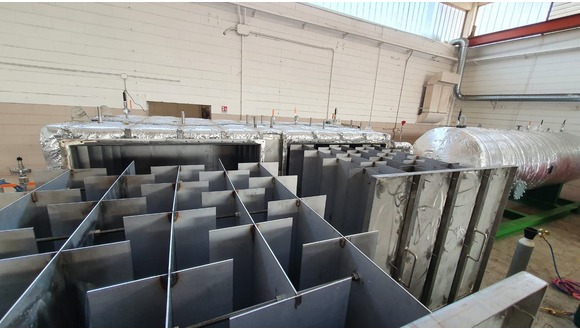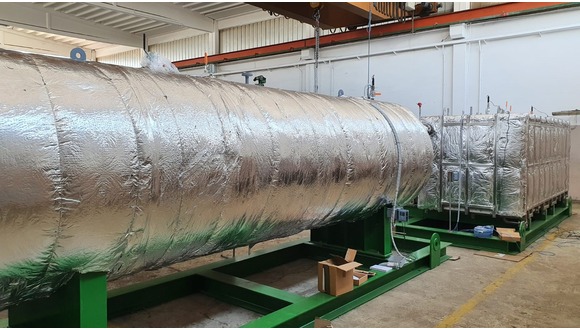Thu, 02 November, 2023
Paolo Taddei Pardelli, Managing Director at GeoSmart project partners Spike Renewables S.r.l., took some time to explain how they are helping advance the progress of geothermal energy solutions.
Can you start by telling us a bit about Spike Renewables?
Paolo: Spike Renewables S.r.l. is an engineering company focused on system engineering that deals with all aspects of a project, from design to construction and integration.
Spike overlaps and manages technical and human-centred disciplines such as design, industrial engineering, control engineering, project management and cost monitoring.
This method of operating is possible thanks to the stable collaboration with various universities and to the highly skilled staff.
Spike Renewables S.r.l. is also a founder member of the University of Florence spin-off, RE-CORD (Renewable Energy Consortium for Research and Demonstration), a not-for-profit institution.
Can you let us know how Spike is involved in the GeoSmart project?
Paolo: We have been developing a scaling reduction system to increase geothermal plant efficiency, specifically in retention tanks, as the GeoSmart project optimises and demonstrates innovation to improve the flexibility and efficiency of geothermal heat and power systems.
How will the new retention tank help improve geothermal operations?
Paolo: A limiting constraint for geothermal plants to fully utilise the thermal energy of a well is the need to reinject geothermal brine at a high enough temperature to prevent thermodynamic fouling through silica or calcite scale deposition.
 Figure 1. Scaling reactor – silica deposition on plate surfaces
Figure 1. Scaling reactor – silica deposition on plate surfaces
The design and optimisation of the retention tank has been developed based on silica scaling simulation and of the effects of parameters like pH, temperature, and brine composition on silica polymerisation and scaling deposition.
 Figure 2. Overall system built on skids
Figure 2. Overall system built on skids
The new retention tank is expected to promote polymerisation phenomena inside the tank so that scaling is consequently inhibited in the reinjection well pipes.
Can you finish by letting us know what is next for this project?
Paolo: The system will be validated at industrial level at Zorlu Energy’s Kızıldere 2 geothermal power plant in Turkey.
As well as working on GeoSmart, Italy-based Spike Renewables has been working on the European Union Horizon 2020-funded GEOHEX project.
You can find put more Spike Renewables S.r.l. on their website, here.
The GeoSmart project has received funding from the European Union's Horizon 2020 research and innovation programme grant agreement 818576.
The GEOHEX project has received funding from the European Union's Horizon 2020 research and innovation programme. Grant agreement 851917.